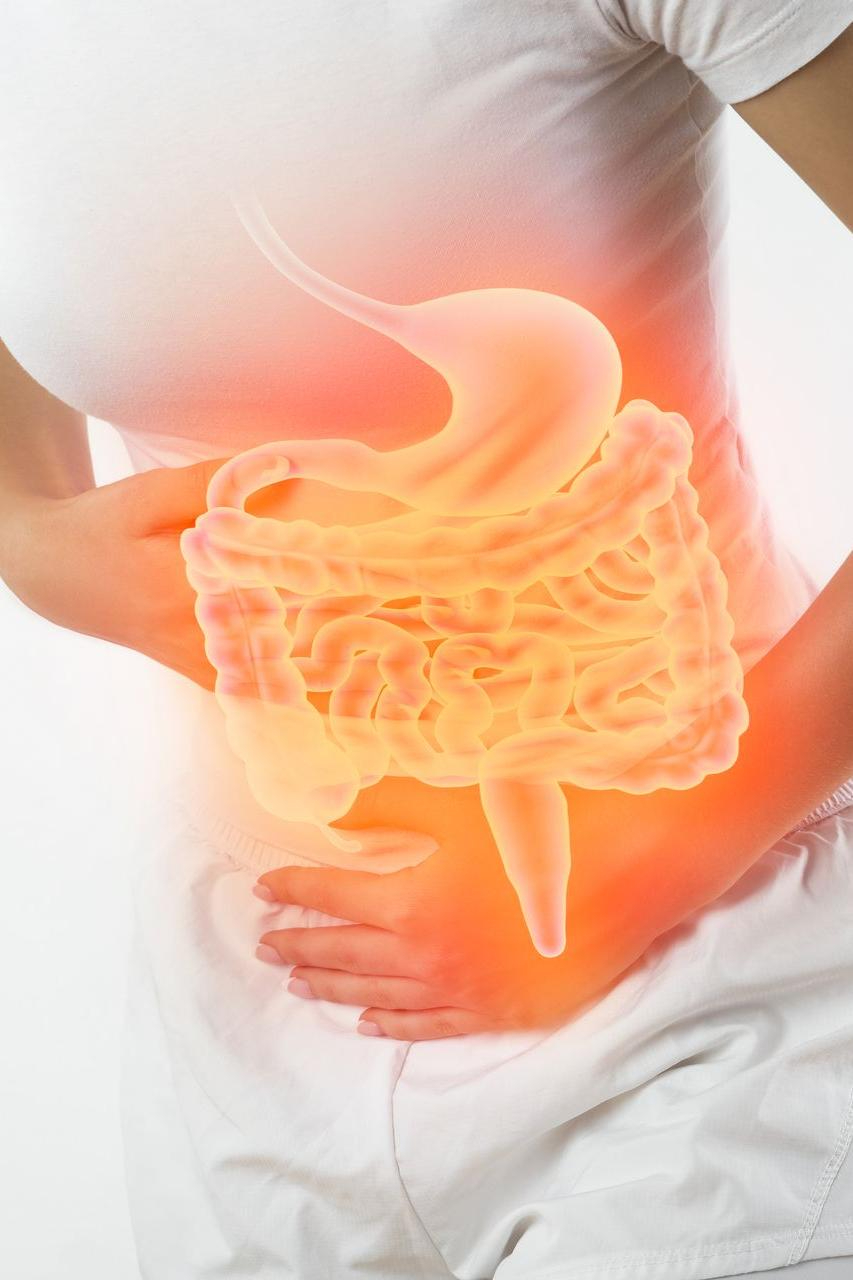The different symptoms

Digestive disorders
Digestive disorders include all disorders that affect one or more organs or parts of the digestive system. These disorders are therefore related to digestion.
There are several types of digestive disorders, including:
- Intestinal transit disorders: diarrhea and constipation, whether acute or chronic
- Gastric acidity, resulting from excess acidity in the stomach
- Painful intestinal syndromes including cramps, bloating and/or flatulence
- Digestive bleeding or hemorrhaging agents (viruses, bacteria...).
Depending on their nature, digestive disorders can have several origins, including:
- Diet: too spicy or not rich enough in fiber
- Digestive allergies
- Chronic diseases such as celiac disease, Crohn's disease
- An infection like gastroenteritis
- Taking medication ...
Digestive disorders can lead to certain clinical signs which can be nausea, vomiting, bleeding from the digestive tract or other. If most digestive disorders are benign, some may indicate a disease. It is therefore necessary to consult a doctor if they persist.
Weakened immune system
An immune deficiency is characterized by a weakening of the body's defenses.
The intestine is a key part of the immune system. Indeed, it is the primary organ of human immune defense. The intestinal flora is specific to each individual, even if certain bacterial species are common. Our immune system protects us from external agents (viruses, bacteria...).
The intestine fulfills this function and if one or the other of its components is weakened, our natural defenses are less effective, and it is the open door to diseases.
The following symptoms can be a sign of a weakened immune system:
- Persistent fatigue, which often hides chronic stress or lack of sleep, 2 factors that weaken immunity
- Increased susceptibility to infections, which can result in frequent colds, urinary tract infections, herpes rashes, etc.
- Wounds that take time to heal.


Urinary discomfort
Urinary disorders refer to dysfunctions and infections of the urinary tract, which disrupt urination, making it more difficult or impossible. Indeed, the first obvious sign of a urinary disorder is difficulty in urinating.
There are several factors that can cause urinary discomfort: sexual intercourse, excessive or insufficient intimate hygiene, tight or synthetic clothing, pregnancy, slowed transit, insufficient water consumption...
The signs that can appear during a urinary discomfort are:
- A feeling of pressure or heaviness in the lower abdomen
- A frequent urge to urinate but in small quantities
- A burning sensation when urinating
- A strong smell of urine.
Stress
Stress is the psychological mechanism used by the body to cope with a particularly trying and/or dreaded situation. It includes a set of physical and physiological reactions.
Stress is generally of short duration and can affect anyone. However, there is also chronic stress, which is a long-term and pathological stress.
The symptoms of stress can be physical or emotional.
For the physical symptoms, one can encounter muscle tension, digestive and intestinal problems, sleep disorders, lack of appetite, migraines, dizziness, fatigue, etc.
Emotional disorders manifest themselves in the form of agitation, irritation, indecision, low libido, anxiety, melancholy, depression, low self-esteem, etc.


Type 2 diabetes
Type 2 diabetes is a metabolic disease characterized by a chronic excess of sugar in the blood.
Insulin is a hormone secreted by the pancreas and is responsible for regulating the blood sugar level (=glycemia) by allowing the cells to take up and use glucose.
In people with type 2 diabetes, insufficient production of insulin or the fact that the cells become resistant to its action changes the blood sugar level. This sugar builds up in the blood vessels and causes what is called hyperglycemia.
There are several risk factors which are:
- Genetics or heredity
- Overweight and obesity
- Sedentary lifestyle
- High blood pressure, etc.
Symptoms can be:
- Increased thirst and hunger
- A frequent need to urinate
- Fatigue
- Dry skin, cuts and wounds that are difficult to heal, etc.
Cholesterol
Cholesterol is a fatty substance that is manufactured by our liver and is also present in the food we eat.
Cholesterol is essential to the normal functioning of our body because it is involved in the synthesis of many hormones, but also in the structure of the membrane that surrounds the cells. However, an excess of LDL cholesterol, called "bad cholesterol", can lead to the formation of deposits on the artery walls. These deposits gradually cause a loss of elasticity in the arteries, reducing their diameter and increasing the risk of heart attack, stroke or arteritis.
Symptoms of high cholesterol are symptoms of complications that may occur. For example: pain in the calves, pain in the chest and a feeling of tightness, nausea, dizziness, fever, headaches, shortness of breath, palpitations, a feeling of coldness in the extremities of the limbs, loss of strength (arms, legs, hands, feet, face) and especially on one side, blurred vision, speech difficulties, etc.


Child growth
The physiological development of the child is based on a set of mechanisms that require vitamins, minerals and trace elements.
Childhood is an important period, which can sometimes be punctuated by certain disorders.
Between the ages of 0 and 5, the major stages of growth are very visible, because they are physical, but we must not forget that the brain and cognitive functions are also in constant evolution until adolescence. Therefore, it is very important that your children receive a good nutritional intake in order to ensure the solidity and optimization of the bone capital as well as a good development of the immunity.
We can therefore help our children grow naturally through a balanced diet and the right supplements.
Allergies
Allergies are immune system reactions to typically harmless substances. Common triggers include pollen, dust mites, pet dander, certain foods, insect stings, and medications.
Symptoms vary but may include sneezing, runny or stuffy nose, itchy or watery eyes, skin rashes or hives, swelling, coughing, wheezing, shortness of breath, nausea, vomiting, diarrhea, and in severe cases, anaphylaxis.
Management involves identifying triggers and avoiding them when possible. Medications may be prescribed for symptom relief and severe reactions.
Understanding the impact of the microbiota on allergies and working with healthcare professionals to develop a personalized allergy management plan is essential for minimizing their impact on daily life.
